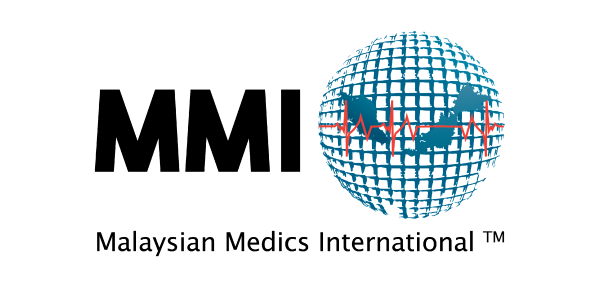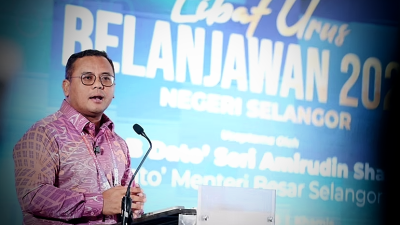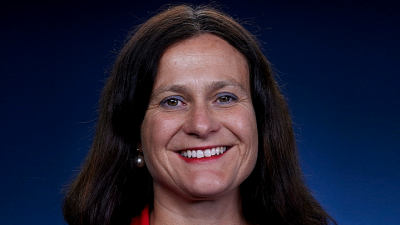
Following the conclusion of the Malaysian Medical Summit 2021, this statement is being released to advocate for the improvement of the housemanship training system in Malaysia, as well as improvements to the welfare of house officers.
Approximately two hundred medical students based throughout the world assembled during the virtual international medical summit to produce a memorandum during the MMI General Assembly.
With this memorandum, MMI calls upon various stakeholders to improve the housemanship training system in Malaysia for the betterment of Malaysia's healthcare system.
Since the onset of the COVID-19 pandemic, there have been changes to the number of house officers intake and quality of housemanship training. At the same time, the future of house officers remains insecure, as several issues that lie within the contract system remain unresolved.
MMI thereby requests:
1. Six bimonthly house officer intakes per year post-pandemic
Due to the COVID-19 pandemic, the pre-determined six annual intakes for housemanship training were not attained.
Thus, we call for a return to this as soon as possible to cater for the increasing pools of medical graduates waiting for their training.
Firstly, we urge the Public Service Department (JPA), the Human Resource Department (BSM) and Bahagian Pengurusan Latihan (BPL) of the Ministry of Health (MOH) to establish a fixed housemanship intake structure and reinstate the six annual bimonthly intakes post-COVID-19 to accommodate the supply of medical graduates.
We suggest the disclosure of intake dates and the release of a comprehensive guide (regarding the registration process and estimated timeline) on the e-housemen website with one-month prior notice to facilitate the application process, with frequent updating and reviewing after establishment.
Post-pandemic, we call for a systematic plan to ensure the housemen graduation rate is progressively restored, to free up training spaces.
This includes methods such as, but not limited to, setting and enforcing district/state-level targets (i.e. return to 15% of original intake's capacity every quarter) with consideration to housemen quality assurance; appointing district MOH offices to set up networks between MOH hospitals for the flexible reallocation of housemen to better capacitating hospitals.
2. Addressing the quality of housemanship training
Our housemanship teaching system faces issues like burnout and a disproportionate teacher-to-student ratio.
Senior doctor numbers are insufficient, leading existing senior doctors to feel overburdened in the government sector, and resulting in many departures from the system.
We request the MOH, Academy of Medicine of Malaysia and Ministry of Finance to review the financial allocation for the healthcare sector, in comparison with regional peers.
We propose to increase incentives to retain specialists, and award scholarships for specialities required to accredit housemen training hospitals (e.g. O&G, orthopaedic and paediatrics) which enhance the learning of housemen with an improved teacher-to-student ratio.
We request the Malaysia Medical Council (MMC) and the cabinet to scrutinize and reduce the list of recognized universities in the Medical Act 1971 to diminish the glut of medical graduates without affecting current students and graduates.
To create a healthy workplace culture, medical universities should initiate mentorship programs to supplement medical education and empower student-driven initiatives.
We also humbly ask the medical fraternity to engage in open discussions with junior doctors as this will encourage a culture of teaching.
Besides, we hope the MOH would consider initiating a feedback system for all houseman postings.
Not only will this help bring meaningful changes, but it will show junior doctors that the healthcare system values them.
3. Enabling and improving specialization pathways
We call on the MOH, MMC and JPA to approve the extended 10-year contract system proposed by the Malaysian Medical Association (MMA).
We recommend granting contract extensions on a 2+4+4 yearly basis, with further automatic extensions to allow the completion of speciality training and gazettement.
We recommend the expansion of the current list of accredited overseas postgraduate training programs by the MMC.
We also support the introduction of an education loan for medical officers (MOs) intending to pursue accredited postgraduate training programs, with incentives (e.g. loan forgiveness) available to doctors that remain in public service post-specialization.
We recommend that MOH adopt a new nomenclature system for MOs at different stages of training, to clarify the different roles of MOs within the health system, and to facilitate the re-admittance of foreign-based speciality trainees to the Malaysian health system.
We recommend that the MMC recognizes time spent in speciality training under accredited postgraduate training programs overseas, and permits returning speciality trainees to take on more advanced duties, thus shortening the time to completion of speciality training.
We recommend a probation period for any returning speciality trainees, to ensure their quality is on par with service needs.
4. Full transparency in the selection process for a permanent position
While the selection criteria are published and a meritocratic selection process is promised, MMI calls upon more comprehensive selection criteria and a more transparent selection process should new permanent positions for medical officers are appointed.
This would ensure the quality of the selected doctors and reduce candidate dissatisfaction.
We call upon the assessment of the doctors for permanent doctors in a fixed period (e.g. in the last posting of housemanship) using standardized and more comprehensive criteria. This includes the end-of-posting (EOP) assessment, competency of procedures, operations assisted, and case reports.
Candidates who have shown interest in specialization by obtaining Part 1 of the parallel pathway examination (e.g. MRCS, MRCP or equivalent) or a passing grade in the Medical Specialist Pre-entrance Examination (MedEx) should also be given additional merit points in the selection process.
Additional selection criteria could include research and voluntary work. We propose these selection scores and criteria for contract positions be known to all candidates under consideration through official correspondence or seminars.
We also suggest the publication of candidates' overall performance score or ranking in a centralized system to ensure transparency.
The memorandum was tabled to Dr Shahrum Binti Ismail, the Deputy Director of Medical Development Division, Ministry of Health Malaysia.
This memorandum is further supported by a list of medical societies and organizations in Malaysia. The supporting list can be found in the memorandum.
House officers in training are future assets of our healthcare system.
We plead that they are given the opportunities to maximize their potential during the training and be guaranteed specialization options.
The housemanship training system and guidelines should be revised soon to ensure that these young doctors are of quality to be able to serve the country to their best capacity.
ADVERTISEMENT
ADVERTISEMENT


































